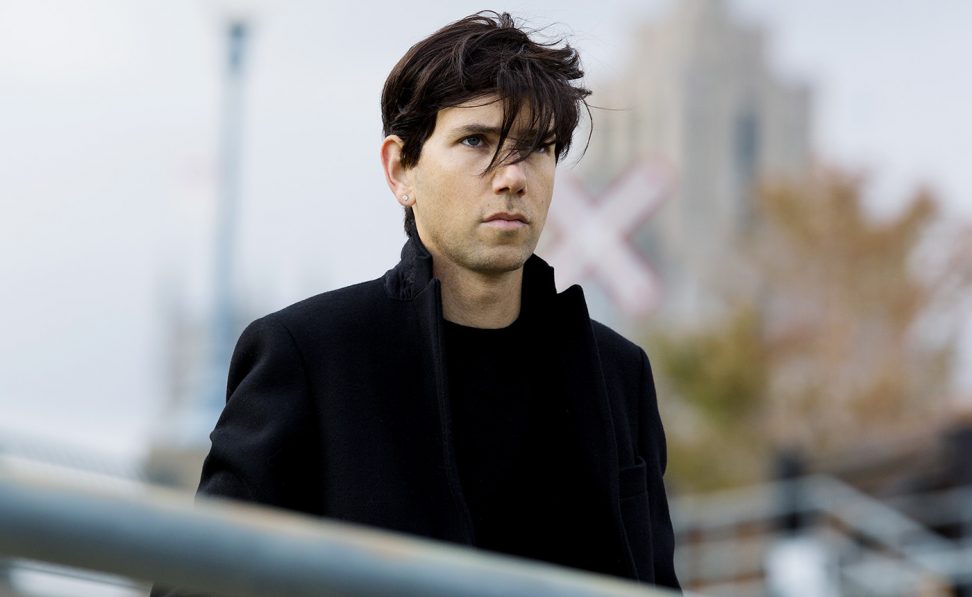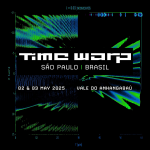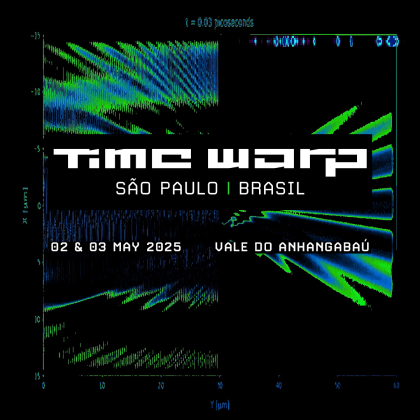Tiga

Origin: Canada
How does one begin to write about Tiga? Where to even start on a long road marked with notable checkpoints? What can be told that can’t be tallied in raw statistics (which he’s a total stickler for), or an unfurled parchment scroll of places gone and plaudits won? The duality of a life split between aspirational popstar and touring deejay falls short: by this point in time he’s lived dozens of lives, let alone a mere two. Frankly the only claim that doesn’t wash is that of being in a legacy mode – because that, to him, denotes the cardinal sin of coasting. And that just won’t do.
The core engine pushing Tiga forward is ambition. It’s there, everywhere: at the dials in any given club in any given city in any given country on any given weekend; burning the midnight oil in the Research & Development wing of his career control centre, crisp shirt sleeves rolled, assessing and strategising over his next move; with his feet up on the gleaming glass desk in the penthouse office of Turbo Towers, gold plaques of decade-dominating dancefloor delights flanking him – it’s there. Self-aware, well-moderated, yet totally unrepentant ambition.
Plus a bit of wit, too. To be insulated from any real backlash over a quarter-century in the game and across many different hats worn, a touch of humility and humour certainly helps it all go down easy. His goal is to dunk on people with success, but do so in a friendly way, soaring overhead with the sly wink of chutzpah (but never the nudge-nudge of solipsistic irony for irony’s sakes).
To maintain pole position while swerving between all these lanes with impunity, he taps into a well-spring of regenerating desire. From the getgo Tiga has sought to not merely play a part in the culture he abandoned all life commitments for age 17, but frequently scale its heights too:
Attending Berlin’s Love Parade circa ’92-95, then hearing DJ Hell drop “Sunglasses At Night” to the masses not too many years later. Giving a speech at his Montreal alma mater, then converting some of the impressionable graduates in the audience to come work at Turbo. Starting an independent label on a whim, then reaching 200 releases in a stormy industry with a higher turnover rate than Real Madrid managers. Getting hooked first on the fearless compulsion of Bowie, Reznor and Almond, then the frigid cool of Mills, Hawtin and D. James, then threading the needle consummately between these two worlds. These highwatermarks form the backbone of his pride, and in turn, fuel the self-perpetuating motion machine inside.
There’s always extra room in the cockpit, mind. An army of collaborators, remixers and remixees have provided vital thrust over the years. From Alter Ego and Azari & III through Duke Dumont and Depeche Mode; from Matthew Dear and Moby, through Zombie Nation and Zdar, Phillipe; Paranoid London, Pusha T, Pet Shop Boys and Peaches.…on and on it goes. Read between the lines and you’ll get a measure of the man. Teamwork affords stimulus, shuts down ego, and juices something he can’t get to alone. At heart, it brings out the best in Tiga. So it’ll prove in 2018, where the fingers of his well-combed Rolodex currently rest on entries marked Kolsch, The Martinez Brothers, and Hudson Mohawke. The fruits of this friendly jousting with find their way out of track ID requests and into the shops before long (perhaps even by the moment you read this – hope you’re enjoying the future and remembered to short your cryptocurrency in time).
It would be a lot easier to rest on his laurels by this point, really. To trade on former glories, reflect fondly on a career spent dovetailing in and out of the spotlight with likeminded friends, turning in a jaded, half-assed representation of himself at festivals and recording sessions when the taxman comes knocking. But Tiga is still too confident, self-respecting, and – how did you guess? – ambi-tious for that. The challenge he seeks is to keep experiencing the frisson of creative alchemy, to lock into a groove where he is truly in the zone, to dig deep and reproduce a fresh take on that first-love feeling of music: something that connects with young ravers and inspires the same spark he felt all those years ago. That’s the spur, the lifeblood, the DNA.
And that’s why Tiga remains an ever-present light in our little corner of the universe.



